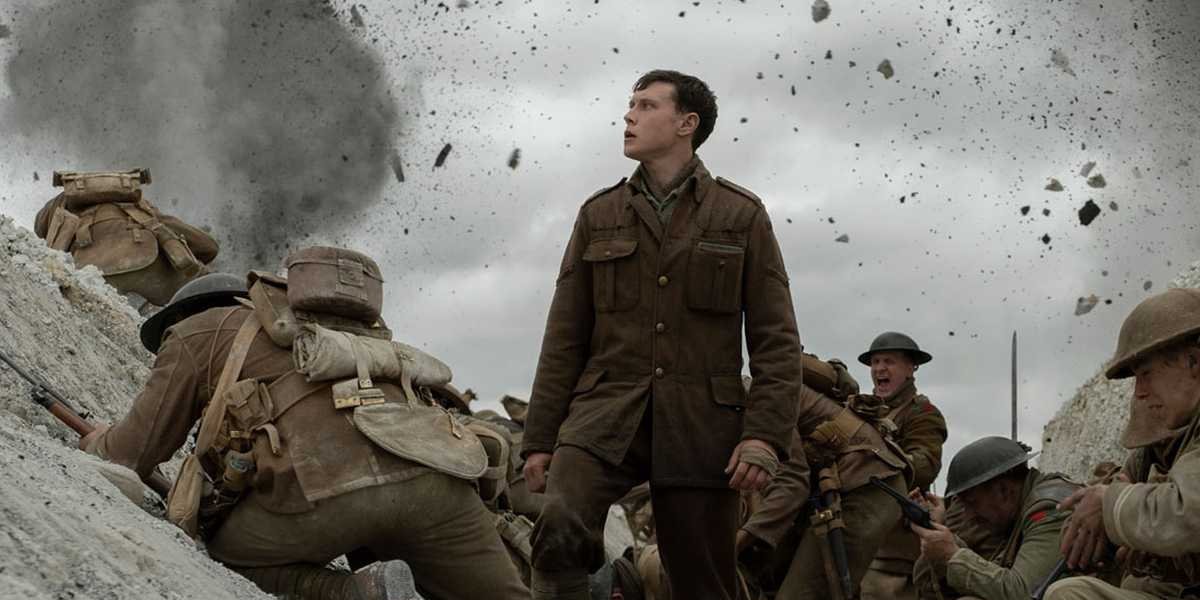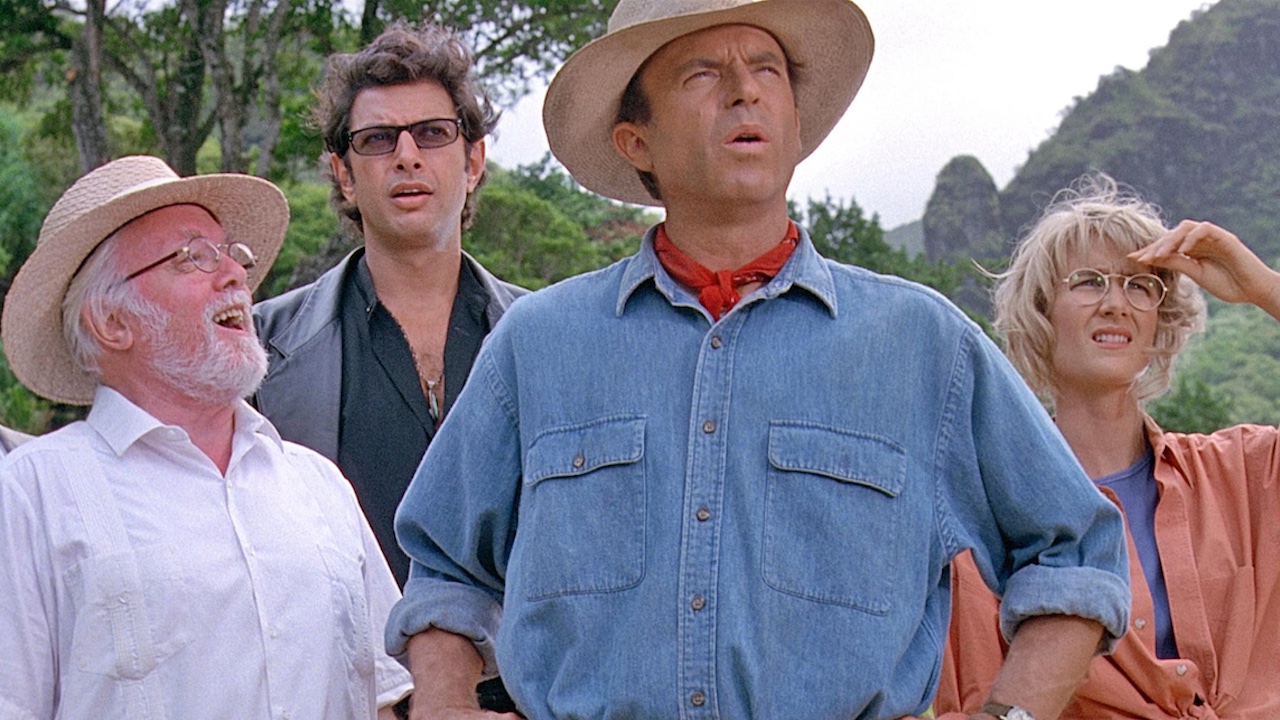While there are few cinematographers who can be classified as household names, Roger Deakins remains an exceptionally special talent. His career stretches back to the late 1970s, getting his start in documentary filmmaking, but today he is best known for collaborating with some of the greatest directors in the industry (including the Coen brothers, Sam Mendes, and Denis Villenueve), and in the process producing truly jaw-dropping visions.
When Deakins’ name is in the credits, the educated film-goer now knows to mentally prepare for something sumptuous and special – but 1917 is a cinematic experience unlike anything he’s ever accomplished before. Working together for the fourth time, the Academy Award cinematographer and Sam Mendes have crafted a powerful, unrelenting tour through the absolute hell that was World War I, with the stunning method to the madness being a design that sees everything captured in what feels like one continuous shot.
And while the material being featured through the narrative is familiar from World War I movies of the past, the way it’s brought to life here lets it feel entirely new and just as horrific and terrifying as ever.
Set during the third year of the global conflict, as thousands of soldiers died from artillery and aircraft fire and spent days if not weeks trapped in trenches, 1917 centers on Schofield (George MacKay) and Blake (Dean-Charles Chapman), two privates in the British army who are given a devastatingly important mission from their General (Colin Firth). A regiment that includes Blake’s brother is planning an attack on what they believe to be retreating Germans – but what they don’t know is that it’s actually a strategic retreat. A trap is being set, and should the British forces fall into it, the result could be 1,600 casualties.
The Captain leading the charge set to dispatch his men at dawn, so Schofield and Blake must travel through the French countryside to deliver the message in time, all while navigating the tortured and unpredictable terrain and keeping mindful of enemy combatants.
1917 doesn’t feature a new side of World War I, but it does drop you running and screaming into the action.
With a natural ticking clock narrative and a cinematography style that – barring some exception I won’t get in to – tracks events in real time, pressure is ratcheted up to 10 just a few minutes into 1917, and does everything in its power to try and keep you holding your breath throughout the entire ordeal. The friendly comradery between Schofield and Blake at times provides a bit of a release, as the characters can lean on each other for help and support, but it means less and less as the story plays out and the circumstances become even more dangerous and dire.
There is a certain episodic nature to the plot, as there are several action and character-driven vignettes that play out across the movie’s runtime, and each does its part to both continue the journey and depict life during World War I. The trek across the dreaded and body-strewn No Man’s Land sucks the air out of your lungs; witnessing a taste of civilian life is heartbreaking; and even aerial combat finds its way into the piece.
Your Daily Blend of Entertainment News
The one-shot cinematography in 1917 is phenomenal and special.
Ultimately the story is pretty simple, and there are a couple of contrivances run into along the way, but 1917 primarily exists as a technical achievement, and in that capacity it is a true marvel. The construction isn’t TOTALLY perfect, as the one-shot aesthetic isn’t seamless due to some fairly obvious cut points, but that hardly detracts from what’s being done in the big picture.
This is a case where a behind-the-scenes documentary may end up being as fascinating as the finished film itself, as there are certain camera maneuvers that are simultaneously breathtaking and mind-boggling to the point where thoughts of “How did they do that?” momentarily take you out of the cinematic journey. The perfect second viewing of this film would be a cut that is put side-by-side with footage taken from set that just follows everything that the main camera is doing during every shot.
As though executing the camera movement weren’t enough, the style also demands that scenes cannot be traditionally lit, with the added “bonus” being that it’s almost all set outside, and yet the work of Sam Mendes and Roger Deakins is still able to expose incredible color and atmosphere in the environments – with some of the most spectacular work coming when the sun has gone down and fire is the primary source of illumination.
Very much carrying 1917, George MacKay and Dean-Charles Chapman are excellent.
The less that’s known about the cast of 1917 the better, as there are some fun surprise appearances from great actors laced into the story – but truly the movie is hoisted on the shoulders of George MacKay and Dean-Charles Chapman, both of whom deliver excellent performances. MacKay in particular is continually proving to be a great actor, as his turn as Schofield is a dramatic and harrowing turn following his wonderful work in Matt Ross’ Captain Fantastic and the limited series 11.22.63. Not to be sold short, Chapman gets across some emotional material here, proving to be more than just Game of Thrones’ Tommen Baratheon.
There is a thin line that exists between “storytelling device” and “gimmick,” and while 1917 tiptoes on that line as it unfolds its war story, there is no questioning the extraordinary achievement in what’s been crafted here. It’s a must to behold on the biggest screen available, and sits alongside some of the best works in Mendes’ and Deakins’ respective careers.

Eric Eisenberg is the Assistant Managing Editor at CinemaBlend. After graduating Boston University and earning a bachelor’s degree in journalism, he took a part-time job as a staff writer for CinemaBlend, and after six months was offered the opportunity to move to Los Angeles and take on a newly created West Coast Editor position. Over a decade later, he's continuing to advance his interests and expertise. In addition to conducting filmmaker interviews and contributing to the news and feature content of the site, Eric also oversees the Movie Reviews section, writes the the weekend box office report (published Sundays), and is the site's resident Stephen King expert. He has two King-related columns.

